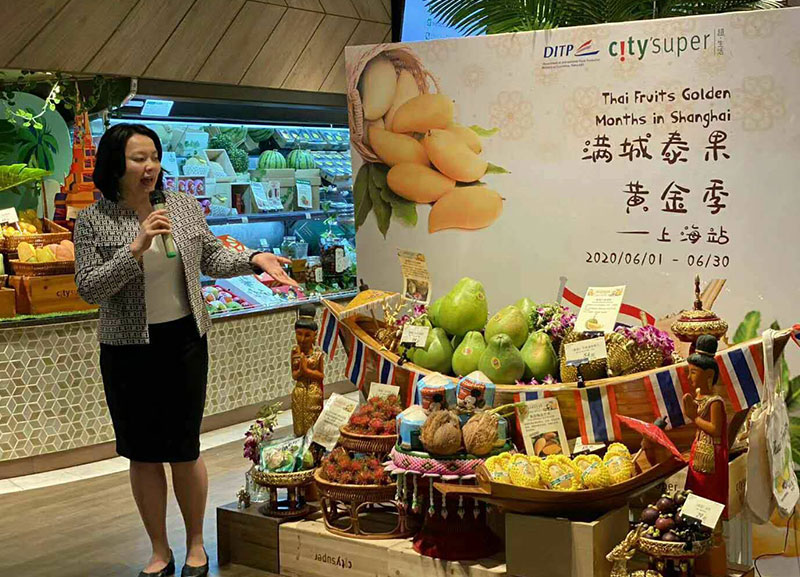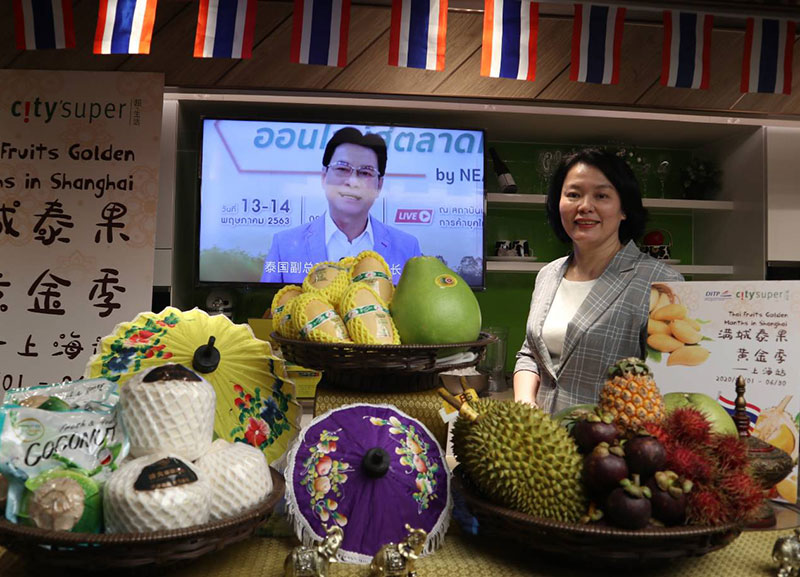
Q&A with Jeeranun Hirunyasumlith, Commercial Consul, Royal Thai Consulate General, Shanghai and Director of Thai Trade Center, Shanghai.
Could you share how China’s economy has been affected by the COVID–19 outbreak?
During the first quarter of 2020, the COVID-19 outbreak had an impact on China’s economy. China’s total international trade decreased by 8.24% from January to March 2020. China’s business sector was widely affected, especially in retail and hospitality. China reported that its GDP for the first quarter had contracted by 6.8% compared with the previous year. However, the COVID-19 outbreak has gradually brought under control since March 2020. Chinese companies and factories have begun to resume their operations, and people are starting to get back to normal, spending more time out of their homes. In March, sales of consumer goods fell by 15.8% compared with the previous year, but online sales of goods rose by 5.9%.
How has trade between Thailand and China fared since the start of the year?
During the first five months of 2020, overall trade between Thailand and China was around US$32 billion, an increase of 1.3% on the previous year. The top five export products from Thailand to China were fresh, chilled, frozen and dried fruit (US$1.391 billion); rubber products (US$1.271 billion); plastic resin (US$1.105 billion); computer equipment and components (US$912 million); and tapioca products (US$700.7 million). The top five imported products were electrical machinery and components (US$2.851 billion); machinery and components (US$2.09 billion); household electrical appliances (US$1.785 billion); chemicals (US$1.608 billion); and computer equipment and components (US$1.378 billion)
How has the Thai–Chinese Free Trade Area (FTA) benefited both countries?
Since the Thai-Chinese Free Trade Area (FTA) was agreed in 2005, the value of trade between Thailand and China has grown. The Thai-Chinese FTA covers trade liberalisation in various goods, services, investment and economic cooperation. It focuses on reducing taxes between the country members by specifying the types of goods and the period of tax reduction. Thai-Chinese trade in 2019 was worth approximately US$79.49 billion. According to Department of Trade Negotiation, the products granted privileges under the Thai-Chinese Free Trade Area (FTA) cover more than 8,000 items. It can be said that almost all types of goods traded between the two countries have been granted by this FTA.
What products are in high demand in China?
In 2019, the value of Thai exports to China amounted to 11.85% of total Thai exports. One of the high potential Thai products in China is fresh and processed fruit. China currently allows the importation of 22 types of Thai fruit. Last year, the import value was just over US$2 billion. Aside from fruit, food products such as instant food, condiments, snacks, frozen seafood and various kinds of beverages have a rich potential. Another product in much demand is chilled and frozen chicken. In 2019, China increased its imports of frozen chicken from Thailand by 253% to US$222 million.
How does the DITP help Thai entrepreneurs expand into China?
DITP’s Shanghai Office is mainly responsible for promoting the export of Thai products and services to supervised areas in China, namely, Beijing, Shanghai, Zhejiang, Jiangsu, Anhui and Henan, as well as Mongolia. We also focus on sourcing raw materials as well as supporting the expansion and efficiency of Thai exports in international markets. DITP’s Shanghai Office provides information on China’s economic performance, market, policies, regulations and trade measures, as well as coordinating business appointments.
Words by Natthinee Ratanaprasidhi







